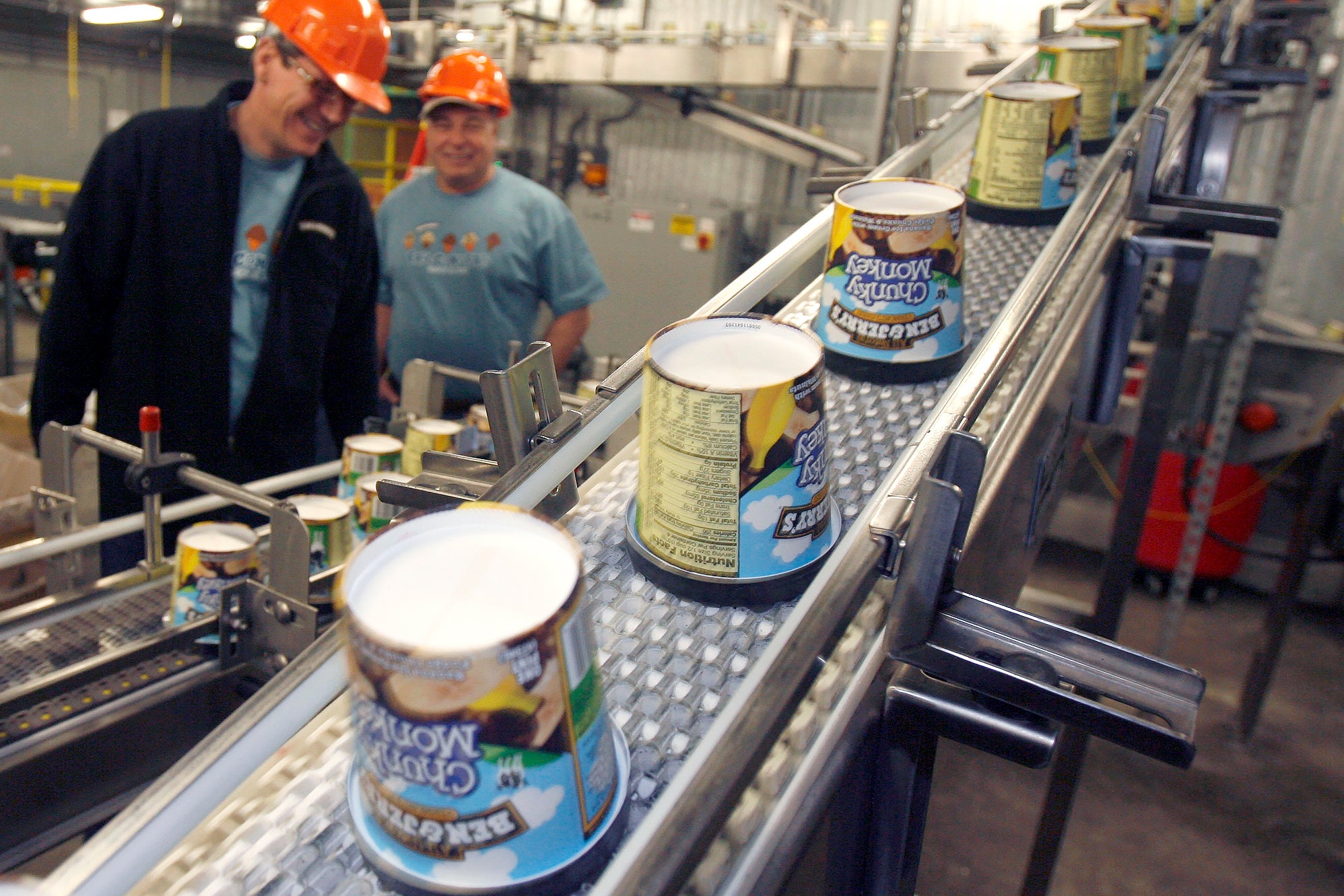Ben & Jerry's to stop selling in Palestinian territories
Ben & Jerry's says it is going to stop selling its ice cream in the occupied Palestinian territories, saying the sales in the occupied land are “inconsistent with our values.”

Ben & Jerry’s ice cream said Monday it was going to stop selling its ice cream in the Palestinian territories, saying the sales in the occupied land are “inconsistent with our values.”
In a statement posted on the company’s website, the Vermont-based ice cream maker says it recognizes “the concerns shared with us by our fans and trusted partners.”
“We have a longstanding partnership with our licensee, who manufactures Ben & Jerry’s ice cream in Israel and distributes it in the region," the statement said. “We have been working to change this, and so we have informed our licensee that we will not renew the license agreement when it expires at the end of next year.”
The statement did not explicitly identify the concerns raised, but last month, a group called Vermonters for Justice in Palestine called on Ben & Jerry’s to “end complicity in Israel’s occupation and abuses of Palestinian human rights.”
“How much longer will Ben & Jerry’s permit its Israeli-manufactured ice cream to be sold in Jewish-only settlements while Palestinian land is being confiscated, Palestinian homes are being destroyed, and Palestinian families in neighborhoods like Sheik Jarrah are facing eviction to make way for Jewish settlers?” the organization’s Ian Stokes said in a June 10 news release. The organization didn't immediately respond to an emailed request for comment.
Founded in Vermont in 1978, but currently owned by consumer goods conglomerate Unilever Ben & Jerry’s has not shied away from social causes. While many businesses tread lightly in politics for fear of alienating customers, the ice cream maker has taken the opposite approach, often espousing progressive causes.
Ben & Jerry's took a stand against what it called the Trump administration’s regressive policies by rebranding one of its flavors Pecan Resist in 2018, ahead of midterm elections.
The company said Pecan Resist celebrated activists who were resisting oppression, harmful environmental practices and injustice. As part of the campaign, Ben & Jerry’s said it was giving $25,000 each to four activist entities.
Aida Touma-Sliman, an Israeli lawmaker with the Joint List of Arab parties, wrote on Twitter that Ben and Jerry’s decision Monday was “appropriate and moral.” She added that the “occupied territories are not part of Israel” and that the move is an important step to help pressure the Israeli government to end the occupation.
While Ben & Jerry's products will not be sold in the occupied territories, the company will stay in Israel through a different arrangement.
In the meantime, right-wing former Israeli Prime Minister Benjamin Netanyahu tweeted: “Now we Israelis know which ice cream NOT to buy.”
The Yesha Council, an umbrella group representing the roughly 500,000 Israelis living in West Bank settlements, said “there’s no need to buy products from companies that boycott hundreds of thousands of Israeli citizens because of the place they choose to live.” It said Ben & Jerry’s decision “brought a bad spirit to such a sweet industry” and called on Israelis to buy locally produced ice cream this summer.
___
Associated Press reporters Lisa Rathke in Marshfield, Vermont, and Ilan Ben Zion and Josef Federman in Jerusalem contributed to this report.
Bookmark popover
Removed from bookmarks